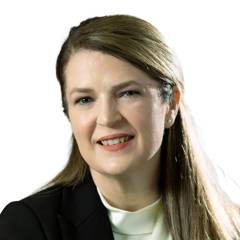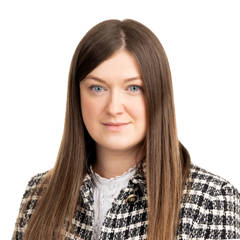07/11/2025
CQC’s consultation ‘Better regulation, better care: Consultation on improving how we assess and rate providers’ marks the next stage in its rebuilding process following the extensive criticisms of the Single Assessment Framework (“SAF”) (launched in early 2024) and the review of the regulator’s operational failings set out in the reports of Dame Penny Dash, Professor Sir Mike Richards, and the Care Providers Alliance.
In this alert we look at what the Consultation proposes in terms of:
- What will the assessment frameworks be?; and
- How will CQC decide ratings on assessments?
What will the assessment frameworks be?
Firstly, it is important to be clear what will not be changing:
- The underlying regulatory requirements on providers are not changing: CQC will continue register and assess providers against the ‘fundamental standards’ in the Health and Social Care Act 2008 (Regulated Activities) Regulations 2014 and the Care Quality Commission (Registration) Regulations 2009.
- CQC will also still continue to assess services against its Five Key Questions (‘Safe?’, ‘Effective?’, ‘Caring?’, ‘Responsive?’ and ‘Well led?’); and
- CQC will continue to rate services against those Key Questions against the same four-point scale (‘Inadequate’, ‘Requires improvement’, ‘Good’ and ‘Outstanding’).
However, it is below the level of Key Questions where the changes (and the lack of clarity in the Consultation as to the nature of the changes) kick in.
What will happen to the Quality Statements?
As previously trailed, CQC propose to develop a framework of supporting questions, similar to the previous key lines of enquiry (KLOEs) to bring greater clarity and consistency as to what inspectors should be reviewing in relation to each of the Key Questions. What is not clear from the Consultation is what this will mean for the existing Quality Statements. CQC has previously indicated an intention to slim down the number of Quality Statements (from the current 34) and, as part of its engagement with providers over the Summer published a draft revised potential list of 23 Quality Statements. However, the Consultation uses mixed language around CQC’s proposals for the Quality Statements, at one point stating that they are to be “replaced” and elsewhere that they are to be “reframed”.
This has led to uncertainty amongst some clients we have spoken to about whether the Quality Statements are to be ‘scrapped’ altogether. However, our assumption is that, whether or not they are called ‘Quality Statements’, the content of the (possibly slimmed down set of) Quality Statements will remain, as topics to be assessed by CQC under the Key Questions to which they relate. However, it would appear that the existing content of the Quality Statements will be supplemented by a set of key lines of enquiry to bring clarity and consistency as to what CQC should be looking at under that particular ‘topic’ when carrying out their assessments.
Sector-specific frameworks and guidance
One of the major criticisms of the Single Assessment Framework was precisely because it is a ‘single’ framework intended to apply to a wide spectrum of differing services – a ‘one size fits all’ approach. Prof Sir Mike Richards, in his Review of CQC's single assessment framework and its implementation stated that “ideological commitment to a single assessment framework cannot be justified, given the very different services that CQC inspects and regulates”.
To address this, as CQC has already indicated in its engagement exercises over the Summer, the Consultation states that CQC proposes to re-introduce assessment frameworks that are specific to each sector, and support the frameworks by publishing more detailed supporting guidance showing the key standards and sources of evidence that it will consider for the services in that sector. This approach is to be welcomed.
The Consultation states:
“A strong theme from feedback on our current approach is that our assessment frameworks and supporting guidance needs to more clearly articulate what good looks like within the different health and care sectors that we regulate. This includes a wide range of services within those sectors, for example including hospitals, GP and dental practices, care homes and homecare (domiciliary) services, and ambulance services”.
And it goes on:
“Within our new sector-specific assessment frameworks, we propose to be clear about which elements of the framework apply to the services that fall within that sector, and how we assess the quality and safety of those services”
The proposed content of these different sector-based assessment frameworks is not yet known. However, the language used in the Consultation suggests that the architecture may recognise that, even within the four sectors represented by CQC’s four Inspectorates (Adult Social Care and Integrated Care; Primary Care and Community Services; Hospitals; and Mental Health), there are ‘sub-sectors’, and that the assessment framework for a sector may apply differently to different sub-sectors within that sector.
The Consultation states that the development of these assessment frameworks will be led by CQC’s four Chief Inspectors working in partnership with “colleagues, providers, people who use services and key stakeholders for each sector”. The Consultation states:
“We intend to publish the draft assessment frameworks on our website as part of our detailed engagement and co-production of their content. We will develop and change these frameworks in response to feedback received from this consultation.”
Despite this, however, the draft assessment frameworks have not yet been published and nothing is yet known about their proposed content, nor the process and timescale for their development. On their website, CQC state that the sector-specific frameworks and ratings characteristics guidance (see below) will be the subject of “focused engagement sessions to hear the voices of people with lived experience and those working across the sectors [it] regulates”. This lack of detail regarding the proposed content of, and process for finalising, the assessment frameworks is a matter of concern. One of the major issues with the implementation of the Single Assessment Framework was that there was no public consultation, and no proper engagement on the detail of how the methodology would work and many of the details only became clear when the SAF was actually implemented (with sight of the first assessment reports). We sincerely hope that CQC will not fall into this trap again this time around.
How will CQC decide ratings on assessments?
The Consultation makes it clear that CQC will move away from the current approach (under the SAF) of awarding ratings for Key Questions by way of an arithmetical calculation based on scores awarded at the Quality Statement level; it will no longer award separate scores underneath the level of the Key Question ratings.
Instead, when awarding a rating at Key Question level, CQC will consider all the evidence it has collected under that Key Question in the round, and will make a judgement as to the appropriate rating applying Ratings Characteristics guidance that it proposes to develop and publish.
This move away from scoring (and back to reference to ratings characteristics guidance) will see an increased role for professional judgement in the ratings that are awarded. Whilst some may welcome this, any judgements reached will need to reflect the proposed Ratings Characteristics guidance and providers will need to be satisfied that the judgements which inspectors reach are reasonable in that context.
In the Consultation Paper CQC state that they will “develop the rating characteristics using a collaborative approach through co-production and engagement, led by our chief inspectors.” Again, however, the content of the proposed Ratings Characteristics guidance and the timescale and process for it to be finalised is not yet known.
All stakeholders are encouraged to review and engage with the Consultation before it closes on 11 December 2025.
If you wish to discuss any issues arising from the Consultation with us, please contact Carlton Sadler, Tracey Longfield, or Lindsey McNee.




